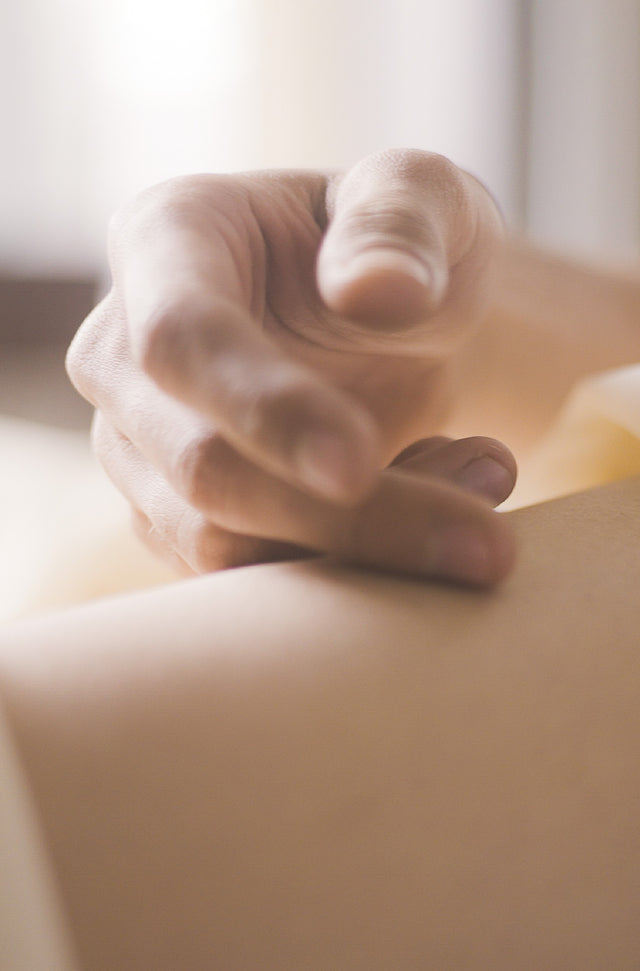Ask a sexpert

intimate questions and receive expert guidance
from our certified sexpert.
ASK A QUESTION
About Jaya
An esteemed sexual educator, therapist, and counselor, Jaya has a wealth of experience and is dedicated to empowering individuals for healthier and more fulfilling life. With a strong commitment to social causes, Jaya has worked closely with the Council of Sex Educators for Social Cause, Kolkata advocating for comprehensive sexuality education and raising awareness on important issues.
Jaya holds a Diploma in Comprehensive Sexuality Education, equipping her with an in-depth understanding of sexual health and wellness. Additionally, her qualifications include a Diploma in Integrative Counseling (PGDIC) as well as a Post Graduate Diploma in Counseling and Psychotherapy.
With a genuine passion for helping others navigate life's challenges, she offers a safe and non-judgmental space for individuals and couples seeking guidance, support, and personal growth.
Ask the sexpert
Get answers here!Exploring sexuality and sexual preferences in a safe and healthy way requires open communication, consent, and exploration within personal limits. Start by being honest with your partner(s) about what you are okay with and what you want to try. To avoid STIs, make sure to set clear limits and use safe sex practices. You can also find out what you like by self-exploring, reading educational materials, or going to sex-positive events or classes.
Sexual performance nervousness can be hard to deal with, but there are ways to get past it. First, it's important to know that anxiety is a normal part of sexual situations and that it's okay to feel nervous. Try paying attention to your breathing, becoming more aware, and fighting negative thoughts. It can also help to talk to your partner(s) and set up a setting that is safe and supportive. Seeking therapy or guidance can also be helpful.
Explore each other's bodies, talk to each other freely, and try new things to make sex more fun for you and your partner(s). You can also increase pleasure by trying out different poses, adding toys or other stimulants, and practicing mindfulness. It is important to remember that pleasure is subjective, and what one person finds enjoyable may not work for another.
STIs can cause a wide range of symptoms, but some of the most common ones are pain or discomfort during sex, an odd flow of fluid, and sores or bumps in the genital area. If you think you might have an STI, you should get checked and treated right away. Most of the time, testing is done by taking a sample of blood, urine, or a swab from the area that is hurt. Depending on the type of infection, treatment can include antibiotics, antiviral medication, or other steps.
Increasing libido naturally involves lifestyle changes such as exercise, healthy eating, reducing stress, and getting enough sleep. Herbal supplements may also help, but it's important to consult with a healthcare provider before taking any supplements or medications.
There are several techniques that can be used to delay ejaculation and enhance sexual endurance. These include mindfulness exercises, the utilization of condoms, and experimentation with different positions and stimulation methods. Effective communication with your partner(s) is crucial to comprehending their needs and desires.
Exploring your body and achieving orgasm involves trying different types of stimulation, such as using your hands or a toy, and focusing on what feels good for you. Practice mindfulness and relaxation techniques to reduce anxiety and increase pleasure.
Feeling sexual disinterest does not necessarily mean that you are asexual. It's important to explore your own feelings and desires and to communicate with your partner(s) about what you are comfortable with and what you want to try. Seeking therapy or counselling can also be helpful in understanding and addressing any underlying issues.
It is not normal to have pain or discomfort during sex, and this should be discussed with a healthcare professional. It can be caused by a number of circumstances, including infections, injuries, or psychological disorders. Communicating with your partner(s) about the problem and getting medical attention can aid in determining the source of the problem and seeking effective treatment.
It's normal to feel bad after masturbating, but it's important to remember that it's a normal and healthy part of being sexual. There is nothing to feel bad about or ashamed of.
Daily masturbation does not always indicate addiction. It is essential to listen to your body and understand your own sexual desires and needs. If you think that your masturbation habits are causing problems in your everyday life or with your relationships, therapy or counselling may help.
Wet dreams are a normal part of sexual development, especially during puberty. They are induced by hormonal changes and are usually harmless. If you have frequent wet dreams outside of puberty, it may be beneficial to explore any underlying psychological causes that may be causing them. Wet dreams are usually harmless and don't require medical treatment. If you have any concerns or are having any other symptoms, it's always best to consult with a healthcare provider.
Wet dreams are a normal part of sexual development, especially during puberty. They are induced by hormonal changes and are usually harmless. If you have frequent wet dreams outside of puberty, it may be beneficial to explore any underlying psychological causes that may be causing them. Wet dreams are usually harmless and don't require medical treatment. If you have any concerns or are having any other symptoms, it's always best to consult with a healthcare provider.
Wet dreams are a normal part of sexual development, especially during puberty. They are induced by hormonal changes and are usually harmless. If you have frequent wet dreams outside of puberty, it may be beneficial to explore any underlying psychological causes that may be causing them. Wet dreams are usually harmless and don't require medical treatment. If you have any concerns or are having any other symptoms, it's always best to consult with a healthcare provider.
Thanks for contacting us. We'll get back to you as soon as possible.


